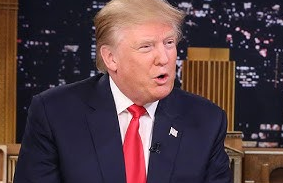The political resurgence of President-elect Donald Trump has sparked significant upheaval within the Democratic Party and left the entertainment industry, particularly late-night television, grappling with its relevance in today's climate. Shows featuring popular hosts like Stephen Colbert, Jimmy Kimmel, and Jimmy Fallon are experiencing a downturn in ratings, indicating a disconnect with their audience sparked by a heavy focus on political satire.
An analysis by the Media Research Center during the peak of the 2024 election revealed that a staggering 98 percent of the content created by these late-night shows targeted Trump, while vice-presidential candidate JD Vance represented 78 percent of the remaining jokes. This singular focus on anti-Trump sentiment is speculated to be a contributor to the shows' dwindling viewership, as many are now labeling this phenomenon “Trump Derangement Syndrome.” Audiences are tuning out in droves, reflecting a demand for more diverse and relatable content rather than constant mockery of the former President.
The fallout from the Democrats' electoral performance only compounds the narrative, as the party appears fragmented and lacking direction. The irony of Hollywood figures like Alec Baldwin and Cher pledging to relocate to Canada contingent on Trump’s victory—and then not following through—marks a notable reflection of the disconnect many in the entertainment industry face with the general public.
This decline in late-night television is emblematic of a larger cultural transformation. As Trump steps back into the political arena, media and entertainment must adapt to an evolving landscape. Late-night programs may need to veer away from divisive narratives to resonate with a more diverse spectrum of viewers, or risk becoming a relic of a past political era.

















